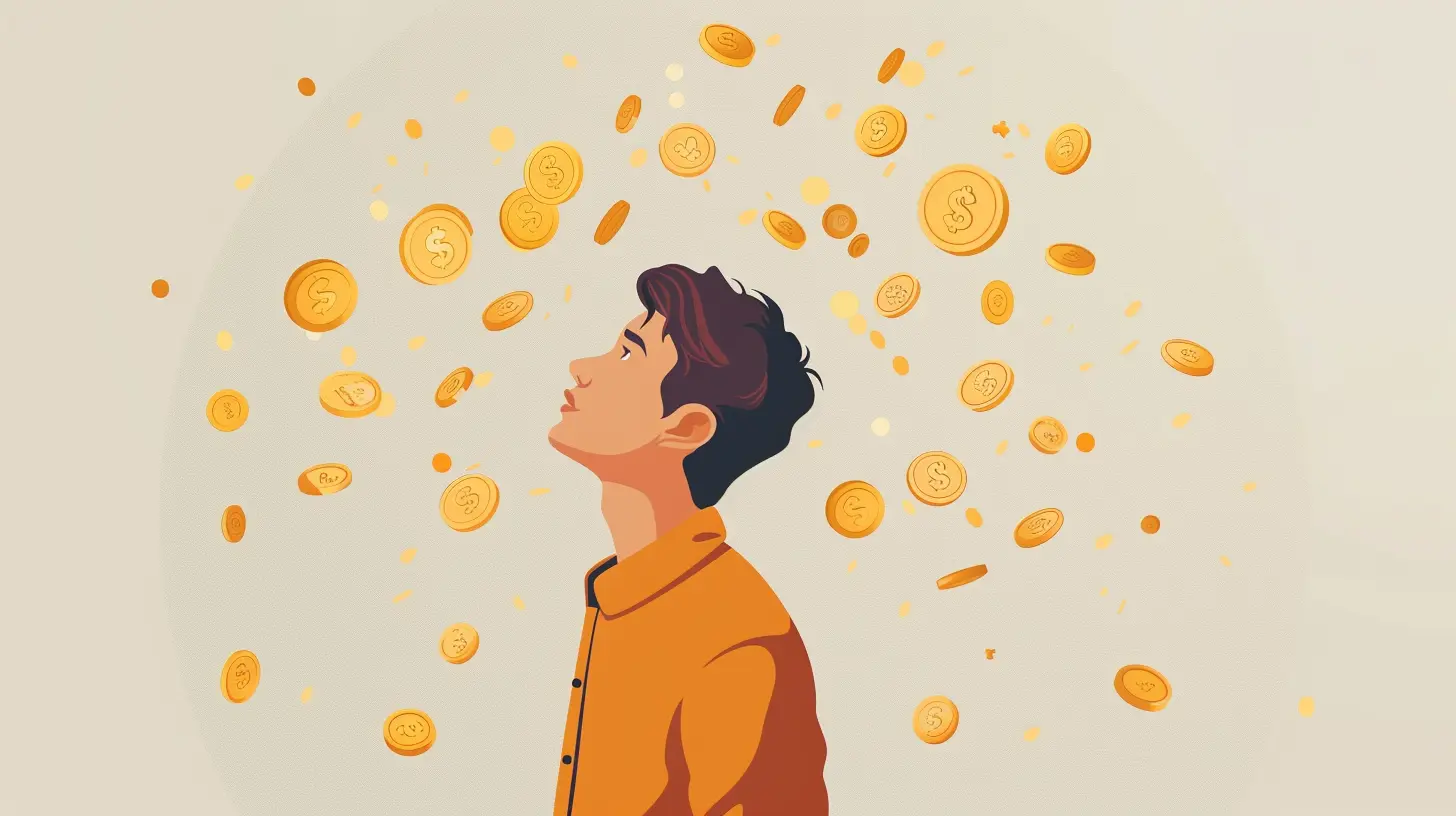Understanding the Impact of Debt on Mental Health
28 December 2024
Let’s face it—money matters can be overwhelming. Whether it’s student loans, credit card balances that just won’t budge, or a mortgage looming over your head, debt is no joke. But have you ever stopped to really think about how that debt might be impacting your mental health?
It’s not just about the dollars and cents. Debt has a sneaky way of creeping into your mind, affecting your sleep, your mood, and even your relationships. In this post, we’re going to take a deep dive into how debt and mental health are connected, what the signs of financial stress are, and what you can do to take back control. 
The Overwhelming Connection Between Debt and Mental Health
Why Debt Feels So Personal
Debt isn’t just a number on a piece of paper (or a glowing screen). It feels personal, doesn’t it? It’s like carrying around an invisible backpack filled with emotional bricks. Every swipe of the credit card, every late fee, every notice in the mail—each of these can add a new brick until the weight starts to crush you. That crushing feeling? That’s stress, and it’s relentless.When you’re in debt, it’s easy to feel like you’ve failed at adulting. But guess what? You’re not alone! According to a study by the American Psychological Association, 72% of Americans reported feeling stressed about money at least some of the time. So, if you’re feeling down about your finances, know that you’re in good company. The key is figuring out how to tackle that stress before it spirals out of control. 
How Debt Messes with Your Mind
Anxiety and Worry
Ever had that nagging feeling in the pit of your stomach, like something’s always wrong? That’s anxiety, and debt can be one of its closest friends. When you’re worried about how you’re going to pay the bills or make ends meet, it’s hard to focus on anything else.Debt-related anxiety can keep your brain stuck in a loop of “what ifs”:
- What if I lose my job?
- What if I can’t make rent?
- What if I have to ask for help?
It’s exhausting, right?
Depression and Feelings of Hopelessness
Debt doesn’t just make you anxious—it can also leave you feeling hopeless. When the numbers in your bank account don’t match the numbers on your bills, it’s easy to feel like there’s no way out. This sense of hopelessness can bleed into other areas of your life, making you feel stuck in more ways than one.Think about it: How often have you avoided social activities because of money? How many sleepless nights have you spent crunching numbers in your head, only to come up short? The emotional toll is real, and it can lead to a downward spiral if left unchecked.
Shame and Isolation
Debt can be incredibly isolating. Why? Because nobody likes talking about financial struggles. You might feel ashamed or embarrassed, like you’re the only one struggling to keep up. But here’s the thing: Debt doesn’t discriminate. People from all walks of life—your friends, family, coworkers—could be dealing with the same thing.
Physical Health: The Sneaky Side Effect of Debt
Money problems don’t just mess with your mind; they can also wreak havoc on your body. Stress from debt has been linked to a ton of physical issues like:- Headaches and migraines
- High blood pressure
- Trouble sleeping
- Stomach issues
Debt can literally keep you up at night, and we all know how lack of sleep can throw your whole body off. Stress hormones like cortisol start pumping through your veins, making you more prone to illnesses and even long-term chronic conditions. Yikes! 
How to Recognize Financial Stress
If you’re reading this and thinking, “Yeah, that sounds familiar,” don’t worry. The first step to managing financial stress is recognizing the signs. Here are a few to watch out for:1. Constant worry about money: If money’s on your mind 24/7, that’s a red flag.
2. Avoiding bills or bank statements: Out of sight, out of mind, right? Wrong. Avoidance only makes the problem worse.
3. Emotional spending: When you’re stressed, you might find yourself buying things just to feel better (hello, retail therapy).
4. Relationship strain: Arguments about money are one of the top causes of tension in relationships.
If you’re nodding along to these, it might be time to take action.
Tackling Debt-Related Mental Stress
Okay, so now that we’ve established how debt impacts mental health, let’s flip the script. How can you manage the stress that comes with it? The answer isn’t a one-size-fits-all solution, but here are some tips that can help.1. Face the Numbers
I know—this one’s tough. But avoiding your finances is like ignoring a leaky faucet. The problem isn’t going to fix itself. Sit down, open up your accounts, and figure out exactly where you stand. Once you have a clear picture, you can start making a plan.2. Set Realistic Goals
Rome wasn’t built in a day, and your debt isn’t going to disappear overnight. Start with small, manageable steps. Maybe it’s paying off one credit card or cutting out a subscription you don’t use anymore. Celebrate those tiny victories—they’ll add up faster than you think.3. Seek Professional Help
Sometimes, you need a little extra support, and that’s okay. Financial advisors, credit counselors, and even mental health therapists can guide you through the process. Think of it like a personal trainer for your money and your mind.4. Talk About It
Remember what I said about debt being isolating? Break the silence! Whether it’s with a partner, a close friend, or a support group, opening up about your struggles can be a huge relief. You’d be amazed at how many people are in the same boat.5. Practice Self-Care
I know, self-care can feel like a buzzword, but hear me out. When you’re dealing with financial stress, taking care of your mental and physical health is more important than ever. Exercise, eat well, get enough sleep, and find time to relax (yes, even if you’re on a budget).Why Talking About Debt and Mental Health Matters
The connection between debt and mental health isn’t something we talk about enough, but it’s so important. By understanding how the two are linked, we can start to break the stigma and offer support to those who need it.If you’re struggling with debt-related stress, know that it’s not a reflection of your worth. It’s just a challenge—a tough one, for sure—but one that you’re capable of overcoming with the right tools and mindset.
So, take a deep breath. You’ve got this.
all images in this post were generated using AI tools
Category:
Debt ManagementAuthor:

Julia Phillips
Discussion
rate this article
16 comments
Honor Sheppard
This article highlights the often-overlooked connection between debt and mental health, emphasizing the importance of financial literacy and support systems in mitigating stress and promoting well-being. A vital read!
February 10, 2025 at 5:38 AM

Julia Phillips
Thank you for your insightful comment! I'm glad you found the article important in highlighting the connection between debt and mental health. Your support encourages ongoing dialogue on this crucial topic.
Caroline Warner
“Debt is like a bad haircut—painful in the moment, but with time, you’ll laugh about it!”
January 29, 2025 at 1:18 PM

Julia Phillips
That's a clever analogy! Just as hair grows back, we can recover from debt—and it’s crucial to prioritize mental health during the process.
Zinna Morales
Debt can be like an elephant in a tutu—awkward, heavy, and hard to ignore! Let’s dance our way to financial freedom!
January 20, 2025 at 5:14 AM

Julia Phillips
Absolutely! Addressing debt is crucial for mental well-being. Let's tackle it together and promote financial freedom!
Adrian Cummings
This article beautifully highlights the often-overlooked connection between debt and mental health! It's so important to recognize how our financial well-being can impact our overall happiness. Thank you for shedding light on this topic—knowledge is power, and understanding our emotions around money can lead to a brighter, healthier future!
January 16, 2025 at 11:41 AM

Julia Phillips
Thank you for your insightful comment! I'm glad the article resonated with you and highlighted this crucial connection between debt and mental health. Your support is greatly appreciated!
Nadia Spencer
Debt can weigh heavily on mental well-being, creating stress and anxiety. Acknowledging this connection is crucial; managing financial health not only alleviates monetary burdens but also fosters emotional resilience and overall wellness.
January 13, 2025 at 9:42 PM

Julia Phillips
Thank you for highlighting the vital link between debt and mental well-being. Acknowledging and addressing this relationship is essential for fostering both financial stability and emotional resilience.
Marni Griffin
Debt and mental health—like a bad sitcom duo. One's always stressing out, and the other's just trying to keep a straight face. Let's untangle this comedy of errors together!
January 11, 2025 at 3:24 AM

Julia Phillips
Thank you for the clever analogy! It highlights the challenges many face and underscores the importance of addressing both debt and mental health in tandem. Let's keep the conversation going!
Calyx McLaury
This article effectively highlights the crucial link between debt and mental health, emphasizing the need for financial literacy and support.
January 8, 2025 at 12:18 PM

Julia Phillips
Thank you for your feedback! I'm glad you found the connection between debt and mental health important. Promoting financial literacy is indeed essential for well-being.
Juliana Schultz
Drowning in debt? Time for a life raft!
January 5, 2025 at 7:56 PM

Julia Phillips
Absolutely! Seeking help and exploring solutions can act as that life raft, providing support and hope amidst financial struggles.
Pierce McCool
Great insights on a vital topic!
December 31, 2024 at 11:24 AM

Julia Phillips
Thank you! I'm glad you found it insightful.
Maxwell McVeigh
This article thoughtfully highlights the often-overlooked connection between debt and mental health. It's crucial to recognize how financial stress can affect our well-being. By raising awareness and fostering open conversations, we can support those struggling and pave the way for healthier financial habits and mental resilience.
December 31, 2024 at 3:33 AM

Julia Phillips
Thank you for your thoughtful comment! I completely agree that addressing the link between debt and mental health is vital for fostering well-being and resilience.
Susan McCord
Debt can severely affect mental health—awareness is crucial.
December 30, 2024 at 9:46 PM

Julia Phillips
Thank you for highlighting this important connection! Acknowledging the link between debt and mental health is vital for fostering understanding and support.
Pierce Thomas
This article raises important insights about the complex relationship between debt and mental health. I'm eager to explore how financial education can alleviate these challenges.
December 30, 2024 at 12:51 PM

Julia Phillips
Thank you for your thoughtful comment! Financial education is indeed a crucial step in addressing these challenges. I appreciate your interest in this important topic.
Valentina Ellison
Debt doesn't just weigh on your wallet; it can devastate your mental health. Acknowledging this connection is crucial. It's time to break the stigma and prioritize mental well-being alongside financial literacy. Don’t suffer in silence—confront your debt and reclaim your life.
December 29, 2024 at 9:23 PM

Julia Phillips
Thank you for highlighting the critical link between debt and mental health. It's essential to address both aspects to foster overall well-being. Breaking the stigma around these challenges can empower individuals to seek help and find balance in their lives.
Zevan Carr
This article beautifully highlights the often-overlooked connection between debt and mental health. It's crucial to recognize and address these emotions for overall well-being. Thank you!
December 29, 2024 at 12:40 PM

Julia Phillips
Thank you for your insightful comment! I'm glad you found the connection between debt and mental health important. It's a crucial conversation to have.
Zephyros Edwards
Debt and mental health: a match made in 'Oh no!' Land! It’s like being trapped in a never-ending game of Monopoly where you can’t even afford the Get Out of Jail Free card. Let’s roll the dice wisely, folks!
December 29, 2024 at 4:06 AM

Julia Phillips
Absolutely! The connection between debt and mental health is critical, and your Monopoly analogy perfectly captures the struggle. Let's prioritize financial literacy and support for better mental well-being.
Vex Kane
Great article! It's so important to highlight the connection between debt and mental health. Many people overlook how financial stress can affect their well-being. Understanding this impact can encourage more open conversations about debt and mental health care. Thanks for shedding light on such a vital issue!
December 28, 2024 at 12:07 PM

Julia Phillips
Thank you for your thoughtful comment! I completely agree that recognizing the link between debt and mental health is crucial for fostering open discussions and promoting better support.
MORE POSTS

The Best Time to Open a New Savings Account

How to Research Small-Cap Stocks for Big Potential Gains

Breaking the Cycle of Debt: A Financial Freedom Guide

Comparing Robo-Advisors and Traditional Financial Advisors

Smart Investment Choices for Long-Term Independence

Your Guide to Choosing the Right Deductible in Insurance Plans

How to Build Wealth Even With a Modest Salary

How to Transition from Employee to Entrepreneur on Your Path to Freedom

How Debt Affects Your Ability to Buy a Home

How to Build a Resilient Risk Management Framework